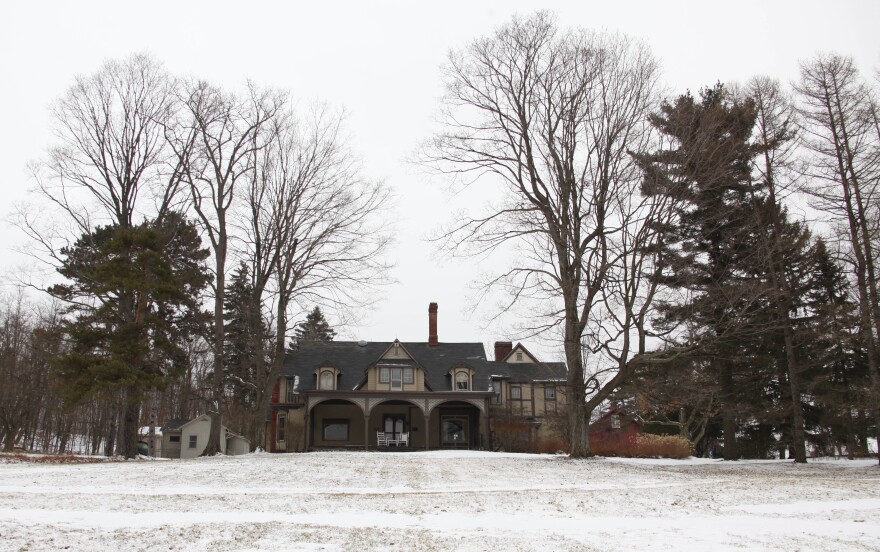Illinois Wesleyan University English professor James Plath is currently in Elmira, New York, at Quarry Farm. Once the summer home of Mark Twain, Quarry Farm is exclusively reserved for scholarship and artist retreats related to Twain.
As a 2023 Quarry Farm Fellow, Plath will begin work on an essay linking Twain to author John Updike, “which might sound like the most far-flung thing until you realize that I’m an Updike scholar,” he said in an interview on WGLT's Sound Ideas.
Like Twain, Updike was an American novelist whose stories were often set in small-town, middle-class America. He died in 2009 having published 20 novels and more than a dozen short-story collections. He was also an art, literary and poetry critic and frequent contributor to the New Yorker, where he wrote the “Talk of the Town” column in the 1950s.

Updike visited Illinois Wesleyan University in 2002, receiving an honorary doctorate. Plath conducted a question and answer session during the visit.
Plath sees the two authors' connection as rooted in their commitment to realism and cultural influence in the American zeitgeist.
“For me, it was an easy sell,” Plath said. “There is this mantle of Writer, with a capital W, that begins with Mark Twain. I think the starting place for me is looking at this.”
He wouldn't say much more, saving the exploration for his time at Quarry Farm. The residency is one of a several conferences and retreats planned during Plath’s sabbatical from Illinois Wesleyan this semester.
Updike, born nearly a century after Twain, worked at a time when novelists and writers were fading as the primary arbiters of American culture. Authors working today have it even tougher — rarely, if ever able to make writing their primary job.
“I think John Updike said it best,” said Plath, “that in his generation, not even the one following him, the writer was no longer the main cultural figure. It was supplanted by the visual artist.”
Plath, also a film critic, said that medium likely holds the most cultural capital today.
“People involved with film have a degree of celebrity now that somehow writers don’t have anymore,” he said.
Case in point: Updike won two Pulitzer Prizes for fiction — one of just four writers to do so.
“That in itself, you’d think, would keep him in this exalted state,” Plath said, “but that’s not the case.”
Twain and Updike have both come under a microscope in the past several years for their depictions of less-than-ideal characters and outdated, offensive language. Both were realists, writing in and about a particular time and place.
“What do you do with works like that?” Plath said. “I don’t believe that you should change literature and I don’t believe that you should penalize writers for writing faithfully, and honestly, and accurately about their lifetime because we don’t want to face the fact that that was part of our past.”



